It has been requested that the title of this article be changed to Vivekananda. Please see the relevant discussion on the discussion page. Do not move the page until the discussion has reached consensus for the change and is closed. |
| Swami Vivekananda | |
|---|---|
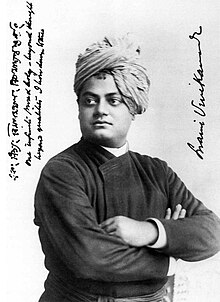 Vivekananda in Chicago, September 1893. On the left, Vivekananda wrote: "one infinite pure and holy – beyond thought beyond qualities I bow down to thee". | |
| Religion | Hinduism |
| Founder of |
Ramakrishna Mission (1897) Ramakrishna Math |
| Philosophy | Modern Vedanta, R?ja yoga |
| Personal | |
| Nationality | Indian |
| Born |
Narendranath Datta 12 January 1863 Calcutta, Bengal Presidency, British India (present-day Kolkata, West Bengal, India) |
| Died |
4 July 1902 (aged 39) Belur Math, Bengal Presidency, British India (present-day West Bengal, India) |
| Guru | Ramakrishna |
| Disciple(s) | Ashokananda, Virajananda, Paramananda, Alasinga Perumal, Abhayananda, Sister Nivedita, Swami Sadananda |
| Literary works | Raja Yoga, Karma Yoga, Bhakti Yoga, Jnana Yoga, My Master, Lectures from Colombo to Almora |
| Influenced | Subhas Chandra Bose, Aurobindo Ghose, Bagha Jatin, Mahatma Gandhi, Rabindranath Tagore, Chakravarti Rajagopalachari, Jawaharlal Nehru, Bal Gangadhar Tilak, Jamsetji Tata, Nikola Tesla, Sarah Bernhardt, Emma Calvé, Jagadish Chandra Bose, Annie Besant, Romain Rolland, Narendra Modi, Anna Hazare |
| Signature |
|
(more in Wikiquote)
Swami Vivekananda (Bengali: (![]() listen); 12 January 1863 – 4 July 1902), born Narendranath Datta (Bengali: ), was an Indian Hindu monk, a chief disciple of the 19th-century Indian mystic Ramakrishna. He was a key figure in the introduction of the Indian philosophies of Vedanta and Yoga to the Western world and is credited with raising interfaith awareness, bringing Hinduism to the status of a major world religion during the late 19th century. He was a major force in the revival of Hinduism in India, and contributed to the concept of nationalism in colonial India. Vivekananda founded the Ramakrishna Math and the Ramakrishna Mission. He is perhaps best known for his speech which began, "Sisters and brothers of America ...," in which he introduced Hinduism at the Parliament of the World's Religions in Chicago in 1893.
listen); 12 January 1863 – 4 July 1902), born Narendranath Datta (Bengali: ), was an Indian Hindu monk, a chief disciple of the 19th-century Indian mystic Ramakrishna. He was a key figure in the introduction of the Indian philosophies of Vedanta and Yoga to the Western world and is credited with raising interfaith awareness, bringing Hinduism to the status of a major world religion during the late 19th century. He was a major force in the revival of Hinduism in India, and contributed to the concept of nationalism in colonial India. Vivekananda founded the Ramakrishna Math and the Ramakrishna Mission. He is perhaps best known for his speech which began, "Sisters and brothers of America ...," in which he introduced Hinduism at the Parliament of the World's Religions in Chicago in 1893.
Born into an aristocratic Bengali Kayastha family of Calcutta, Vivekananda was inclined towards spirituality. He was influenced by his guru, Ramakrishna, from whom he learnt that all living beings were an embodiment of the divine self; therefore, service to God could be rendered by service to mankind. After Ramakrishna's death, Vivekananda toured the Indian subcontinent extensively and acquired first-hand knowledge of the conditions prevailing in British India. He later travelled to the United States, representing India at the 1893 Parliament of the World's Religions. Vivekananda conducted hundreds of public and private lectures and classes, disseminating tenets of Hindu philosophy in the United States, England and Europe. In India, Vivekananda is regarded as a patriotic saint and his birthday is celebrated there as National Youth Day.
Contents
Early life (1863–88)
Birth and childhood
(right) 3, Gourmohan Mukherjee Street, birthplace of Vivekananda, now converted into a museum and cultural centre
Vivekananda was born Narendranath Datta (shortened to Narendra or Naren) in a Bengali Kayastha family at his ancestral home at 3 Gourmohan Mukherjee Street in Calcutta, the capital of British India, on 12 January 1863 during the Makar Sankranti festival. He belonged to a traditional family and was one of nine siblings. His father, Vishwanath Datta, was an attorney at the Calcutta High Court. Durgacharan Datta, Narendra's grandfather was a Sanskrit and Persian scholar who left his family and became a monk at age twenty-five. His mother, Bhubaneswari Devi, was a devout housewife. The progressive, rational attitude of Narendra's father and the religious temperament of his mother helped shape his thinking and personality.
Narendranath was interested in spirituality from a young age and used to meditate before the images of deities such as Shiva, Rama, Sita, and Mahavir Hanuman. He was fascinated by wandering ascetics and monks. Naren was naughty and restless as a child, and his parents often had difficulty controlling him. His mother said, "I prayed to Shiva for a son and he has sent me one of his ghosts".
Education
In 1871, at the age of eight, Narendranath enrolled at Ishwar Chandra Vidyasagar's Metropolitan Institution, where he went to school until his family moved to Raipur in 1877. In 1879, after his family's return to Calcutta, he was the only student to receive first-division marks in the Presidency College entrance examination. He was an avid reader in a wide range of subjects, including philosophy, religion, history, social science, art and literature. He was also interested in Hindu scriptures, including the Vedas, the Upanishads, the Bhagavad Gita, the Ramayana, the Mahabharata and the Puranas. Narendra was trained in Indian classical music, and regularly participated in physical exercise, sports and organised activities. Narendra studied Western logic, Western philosophy and European history at the General Assembly's Institution (now known as the Scottish Church College). In 1881 he passed the Fine Arts examination, and completed a Bachelor of Arts degree in 1884. Narendra studied the works of David Hume, Immanuel Kant, Johann Gottlieb Fichte, Baruch Spinoza, Georg W. F. Hegel, Arthur Schopenhauer, Auguste Comte, John Stuart Mill and Charles Darwin. He became fascinated with the evolutionism of Herbert Spencer and corresponded with him, translating Spencer's book Education (1861) into Bengali. While studying Western philosophers, he also learned Sanskrit scriptures and Bengali literature. William Hastie (principal of General Assembly's Institution) wrote, "Narendra is really a genius. I have travelled far and wide but I have never come across a lad of his talents and possibilities, even in German universities, among philosophical students." Some accounts have called Narendra a shrutidhara (a person with a prodigious memory).
Spiritual apprenticeship - influence of Brahmo Samaj
In 1880 Narendra joined Keshab Chandra Sen's Nava Vidhan, which was established by Sen after meeting Ramakrishna and reconverting from Christianity to Hinduism. Narendra became a member of a Freemasonry lodge "at some point before 1884" and of the Sadharan Brahmo Samaj in his twenties, a breakaway faction of the Brahmo Samaj led by Keshab Chandra Sen and Debendranath Tagore. From 1881 to 1884 he was also active in Sen's Band of Hope, which tried to discourage youths from smoking and drinking.
It was in this cultic milieu that Narendra became acquainted with Western esotericism. His initial beliefs were shaped by Brahmo concepts, which included belief in a formless God and the deprecation of idolatry, and a "streamlined, rationalized, monotheistic theology strongly coloured by a selective and modernistic reading of the Upanisads and of the Vedanta." Rammohan Roy, the founder of the Brahmo Samaj who was strongly influenced by unitarianism, strived toward an universalistic interpretation of Hinduism. His ideas were "altered considerably" by Debendranath Tagore, who had a romantic approach to the development of these new doctrines, and questioned central Hindu beliefs like reincarnation and karma, and rejected the authority of the Vedas. Tagore also brought this "neo-Hinduism" closer in line with western esotericism, a development which was furthered by Keshubchandra Sen. Sen was influenced by transcendentalism, an American philosophical-religious movement strongly connected with unitarianism, which emphasised personal religious experience over mere reasoning and theology. Sen strived to "an accessible, non-renunciatory, everyman type of spirituality", introducing "lay systems of spiritual practice" which can be regarded as prototypes of the kind of Yoga-exercises which Vivekananda popularised in the west.
The same search for direct intuition and understanding can be seen with Vivekananda. Not satisfied with his knowledge of philosophy, Narendra came to "the question which marked the real beginning of his intellectual quest for God." He asked several prominent Calcutta residents if they had come "face to face with God", but none of their answers satisfied him. At this time, Narendra met Debendranath Tagore (the leader of Brahmo Samaj) and asked if he had seen God. Instead of answering his question, Tagore said "My boy, you have the <
Watch movie Swami Vivekanand online on Amazon
Watch movie Swami Vivekanand online
Watch The Movie On PrimeSummer 2007 Full HD Movie Download

Kabzaa-The Mafia Raaj Full HD Movie Download

Ghamandee Full HD Movie Download
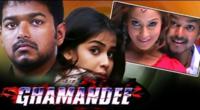
Rani Roopmati Full HD Movie Download
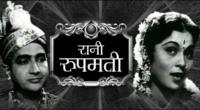
Sikandar (2009) Full HD Movie Download
.jpg)
Benaam (1974) Full HD Movie Download
.jpg)
Manoranjan (1974) Full HD Movie Download
.jpg)
Do Thug (1975) Full HD Movie Download
.jpg)
Victoria House Full HD Movie Download

The Great Gatsby Full HD Movie Download

Senapathi Full HD Movie Download

Karma Police Full HD Movie Download
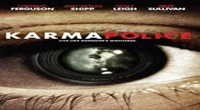
Shalabam Full HD Movie Download

Kamini Full HD Movie Download

Soori Full HD Movie Download

Padamati Sandhya Ragam Full HD Movie Download
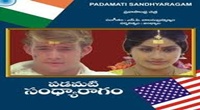
Dongalaku Saval Full HD Movie Download
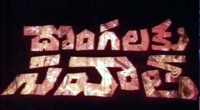
Jagat Khiladi Full HD Movie Download
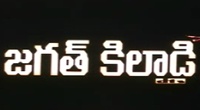
Lakshmi Kataksham Full HD Movie Download
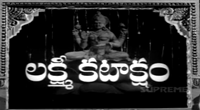
Bunty Aur Babli Full HD Movie Download

Noorie Full HD Movie Download

Download latest Movie from bollywood
- 1> baaghi 3
- 2> THE SKY IS PINK MOVIE FULL STORY AND REVIEW
- 3> Luka Chuppi
- 4> TO ALL THE BOYS I’VE LOVED BEFORE
- 5> Kabir Singh
- 6> Street Dancer 3D
- 7> Simmba
- 8> Gone Girl
- 9> The Girl Who Lived
- 10> Ludo
- 11> DILWALE DULHANIA LE JAYENGE
- 12> GUILTY
- 13> The Godfather
- 14> Adventures of Rusty
- 15> Sooryavanshi
- 16> Satyameva Jayate 2
- 17> Thappad
- 18> Bhool Bhulaiyaa 2
- 19> KGFChapter 2
- 20> Mardaani 2
- 21> Pinjar
- 22> Shivaji maharaj
- 23> Ek Villian 2
- 24> Hungama 2
- 25> Divergent
- 26> Mumbai Saga
- 27> The Internship
- 28> HIT (telugu)
- 29> Panga
- 30> The perfect date
- 31> 16 December
- 32> Gopala Gopala (Telugu)
- 33> Brahmastra
- 34> Gangubai Kathiawadi
- 35> Manmadhudu
- 36> Nenu local
- 37> Mahanati
- 38> Shatamanam bavathi
- 39> Lagaan
- 40> After
- 41> MOM
- 42> Shamshera
- 43> Raguvaran BTech
- 44> Khakee
- 45> The villain
- 46> OM
- 47> Mr. perfect
- 48> Bueatifull mind
- 49> Hichki
- 50> Gabbar Singh
- 51> Jogi
- 52> Before Sunrise
- 53> Before Sunset
- 54> Before Midnight
- 55> The Big Bull
- 56> Top Gun: Maverick
- 57> The Purge
- 58> The Sky is Pink
- 59> Laxmmi Bomb
- 60> Sadak 2
- 61> Sufna
- 62> Prithviraj
- 63> PK
- 64> Coolie No 1(2020)
- 65> Black Widow
- 66> Dear Zindagi
- 67> Dil Bechara
- 68> PHIR HERA PHERI
- 69> WAR
- 70> Dostana
- 71> RRR: Roudram Ranam Rudhiram
- 72> Maidan
- 73> Dabbang 3
- 74> Chhalaang
- 75> life as we know it
- 76> SherShaah
- 77> Sandeep Aur Pinky Faraar
- 78> Event Horizon
- 79> 83
- 80> Radhe: Your Most Wanted Bhai
- 81> Gunjan Saxena: The Kargil Girl
- 82> Mr India
- 83> Vivah
- 84> Anokha Bandhan
- 85> Ghost
- 86> Bhoot: Part One - The Haunted Ship
- 87> Haseen Dilruba
- 88> Laal Singh Chaddha
- 89> Qismat
- 90> Rajput
- 91> Drive
- 92> Dil Chahta Hai
- 93> Dil Ki Baazi
- 94> Dil Ka Rishta
- 95> Teesri Manzil
- 96> Dil
- 97> Love Aaj Kal
- 98> Khaali Peeli
- 99> Bunty Aur Babli 2
- 100> Atrangi Re
- 101> Gulabo Sitabo
- 102> Jodi
- 103> Suraj Pe Mangal Bhari
- 104> Deewana
- 105> Attack
- 106> Sardar Udham Singh
- 107> Toofan
- 108> THE LOVEBIRDS
- 109> Jersey
- 110> Ginny Weds Sunny
- 111> Thalaivi
- 112> Shiddat
- 113> Angels vs Zombies
- 114> Koi Mil Gya
- 115> Thank God
- 116> Bhuj: The Pride of India
- 117> Hum Aapke Hain Kaun
- 118> The Platform
- 119> Bird Box
- 120> Roohi Afzana
- 121> Torbaaz
- 122> Nikamma
- 123> World War Z
- 124> Extraction
- 125> Train to Busan
- 126> Life of Pi
- 127> SHAADI MEIN JROOR AANA
- 128> Himmat Aur Mehnat
- 129> To All The Boys: P.S. I Still Love You
- 130> Mimi
- 131> Good Newwz
- 132> Shubh Mangal Zyada Saavdhan
- 133> Raabta
- 134> Harry Potter and the Philosopher's Stone
- 135> Harry Potter and the Chamber of Secrets
- 136> Chhapaak
- 137> War of the Worlds
- 138> Harry Potter and the Prisoner of Azkaban
- 139> Harry Potter and the Goblet of Fire
- 140> MURDER MYSTERY
- 141> Shakuntala Devi
- 142> Bachchan Pandey
- 143> Jayeshbhai Jordar
- 144> Sheer Qorma
- 145> Saina
- 146> 'O' Pushpa I hate tears
- 147> Kedarnath
- 148> MS Dhoni The Untold Story
- 149> Chhichhore
- 150> Badhaai Ho
- 151> Unstoppable
- 152> Oz the Great And Powerful
- 153> The Girl on the Train
- 154> Haathi Mere Saathi 2020
- 155> The Conjuring: The Devil Made Me Do It
- 156> Gandhi Se Pehle Gandhi
- 157> The Song of Scorpions
- 158> Srimanthudu
- 159> Hello Guru Prema Kosame
- 160> Beauty and The Beast
- 161> Black Panther
- 162> Charlie and the Chocolate Factory
- 163> Bole Chudiyan
- 164> Fidaa
- 165> Duvvada Jagannadham
- 166> Bruce Lee: The Fighter
- 167> Hyper
- 168> Yaara
- 169> Red (2020)
- 170> Shivam
- 171> That Is Mahalakshmi
- 172> Nishabdham
- 173> Aashram 2020 web series
- 174> Laxmii
- 175> Mismatched
- 176> STUDENT OF THE YEAR 2
- 177> NAIL POLISH
- 178> Ramprasad Ki Tehrvi
- 179> KAAGAZ
- 180> 12 o Clock
- 181> The Power
- 182> bolo hau
- 183> Tribhanga
- 184> JAMUN
- 185> Madam Chief Minister
- 186> Maasaab
- 187> Aadhaar
- 188> Tanhaji
- 189> Bhaagi 3
- 190> Bhootnath
- 191> MALANG
- 192> Jai Mummy Di
- 193> Haathi Mere Saathi 2021
- 194> Shakeela
- 195> Unpaused
- 196> Annayya
- 197> Vamsoddharakudu
- 198> Mrugaraju
- 199> Narasimha Naidu
- 200> Sankranti
- 201> Manasu Maata Vinadhu
- 202> Anjaane
- 203> Apaharan
- 204> Bachke Rehna Re Baba
- 205> Bewafaa
- 206> Roohi
- 207> Radhe
- 208> Zindagi Khoobsoorat Hai
- 209> Yeh Mohabbat Hai
- 210> Yeh Kya Ho Raha Hai?
- 211> The Tomorrow War
- 212> DehradunDiary
- 213> Meri Shaadi Karaoo
- 214> Matruu Ki Bijlee Ka Mandola
- 215> No One Killed Jesica
- 216> Aag Ka Goola
- 217> Eight Million Dollars
- 218> Three Hundred
- 219> Cats and Dog
- 220> Decoy
- 221> Gold Rush
- 222> You Have Got Mail
- 223> Final Destination three
- 224> Tofan
- 225> Jungle
